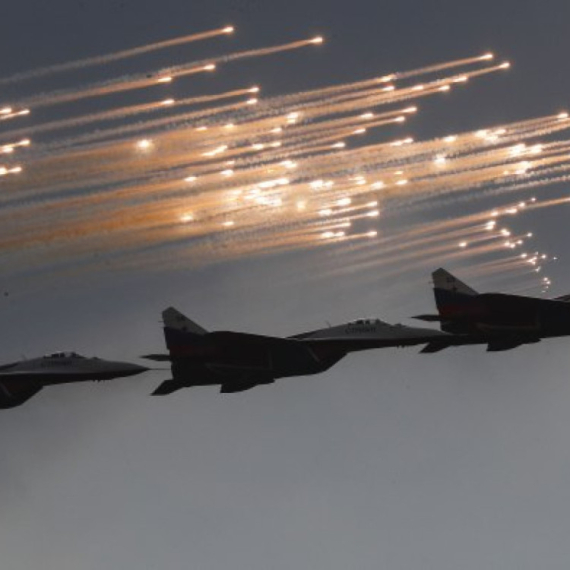Dispute brewing over German presence in Kosovo
Berlin intends to recognize Kosovo independence even if declared unilaterally, outwith Security Council auspices.
Monday, 07.01.2008.
14:57

Berlin intends to recognize Kosovo independence even if declared unilaterally, outwith Security Council auspices. However, the government expects an internal political dispute over the German presence in an EU mission to Kosovo, writes today’s edition of Der Spiegel magazine. Dispute brewing over German presence in Kosovo The weekly claims that Interior Minister Frank-Walter Steinmeier “is readying himself for internal political confrontation over the 2800 German troops remaining in Kosovo, even if it means going before the Constitutional Court.” This is because it is debatable whether German armed forces would be allowed to remain in the province in the event of a unilateral declaration of independence, without the support of the UN Security Council. Allegedly, according to the magazine, the Interior Ministry has already conducted secret studies, which, in brief, suggest that there are no international legal problems arising from the Bundeswehr extending its stay in Kosovo. However, the Bundestag does not share this opinion. At a meeting of the Foreign Policy Committee, Der Spiegel claims, a large number of MPs raised doubts as to whether the Bundeswehr could remain in the province following a unilateral declaration of independence. “Left-wingers and liberals say they want the problem to be looked into from a legal aspect. Vice-president of the Bundestag’s Liberals, Werner Hoyer, has called for “impeccable legal grounds” to be found for the Bundeswehr’s continued presence in Kosovo,” writes the weekly. It adds that a number of Social Democrats (SPD) are exerting pressure on Steinmeier, himself a Social Democrat official, over the matter. Der Spiegel writes that SPD foreign policy expert Johannes Jung believes that there “is not sufficient legal basis” for an operation in Kosovo without a UN mandate, and that that is why “new agreements have to be reached.” The decision to recognize a newly-formed country – in this case, Kosovo – is of a purely executive nature, and does not require Chancellor Angela Merkel’s government to seek the Bundestag’s approval. However, parliamentary support would be required to send Bundeswehr members on an international mission.
Dispute brewing over German presence in Kosovo
The weekly claims that Interior Minister Frank-Walter Steinmeier “is readying himself for internal political confrontation over the 2800 German troops remaining in Kosovo, even if it means going before the Constitutional Court.”This is because it is debatable whether German armed forces would be allowed to remain in the province in the event of a unilateral declaration of independence, without the support of the UN Security Council.
Allegedly, according to the magazine, the Interior Ministry has already conducted secret studies, which, in brief, suggest that there are no international legal problems arising from the Bundeswehr extending its stay in Kosovo.
However, the Bundestag does not share this opinion. At a meeting of the Foreign Policy Committee, Der Spiegel claims, a large number of MPs raised doubts as to whether the Bundeswehr could remain in the province following a unilateral declaration of independence.
“Left-wingers and liberals say they want the problem to be looked into from a legal aspect. Vice-president of the Bundestag’s Liberals, Werner Hoyer, has called for “impeccable legal grounds” to be found for the Bundeswehr’s continued presence in Kosovo,” writes the weekly.
It adds that a number of Social Democrats (SPD) are exerting pressure on Steinmeier, himself a Social Democrat official, over the matter.
Der Spiegel writes that SPD foreign policy expert Johannes Jung believes that there “is not sufficient legal basis” for an operation in Kosovo without a UN mandate, and that that is why “new agreements have to be reached.”
The decision to recognize a newly-formed country – in this case, Kosovo – is of a purely executive nature, and does not require Chancellor Angela Merkel’s government to seek the Bundestag’s approval. However, parliamentary support would be required to send Bundeswehr members on an international mission.
























































Komentari 28
Pogledaj komentare